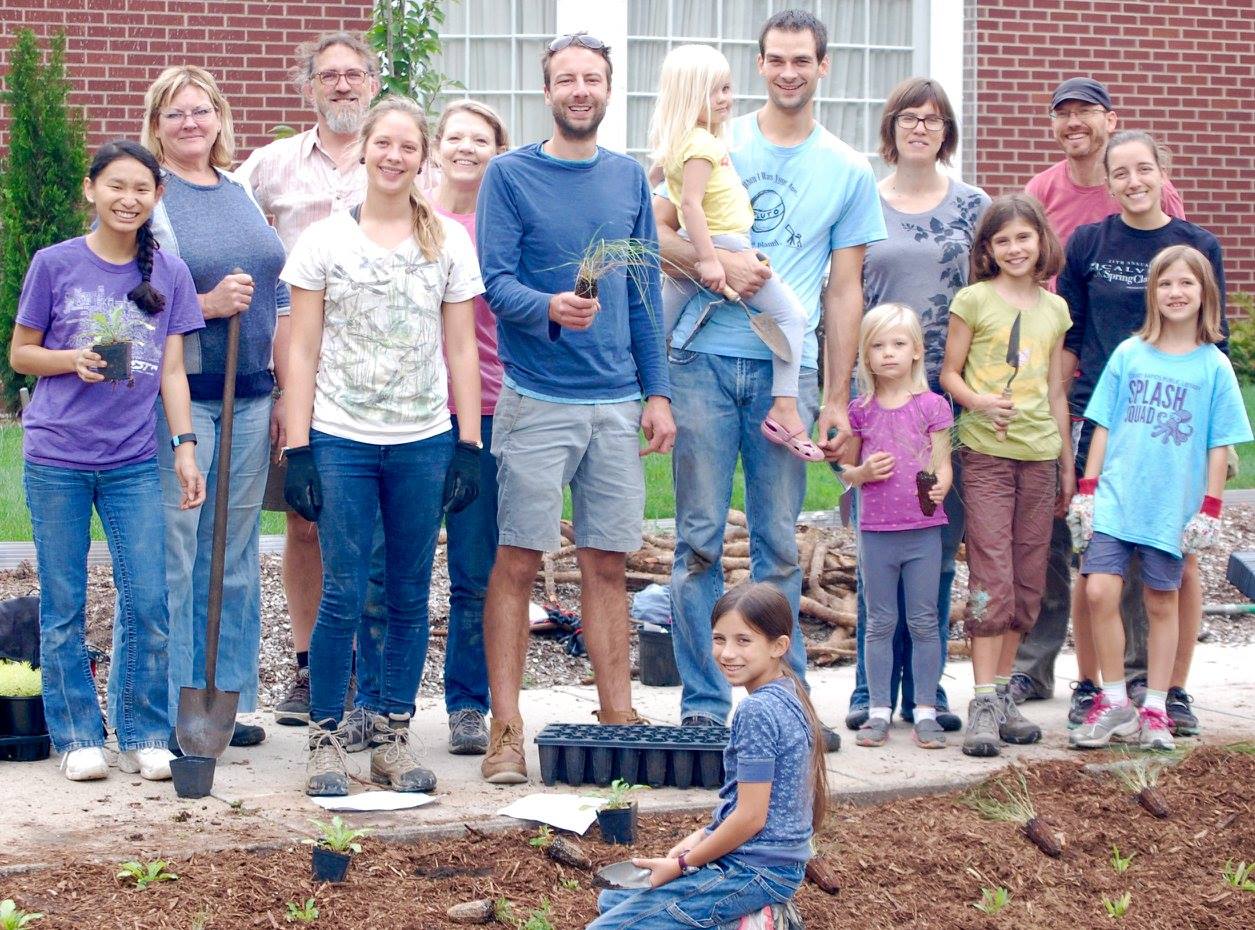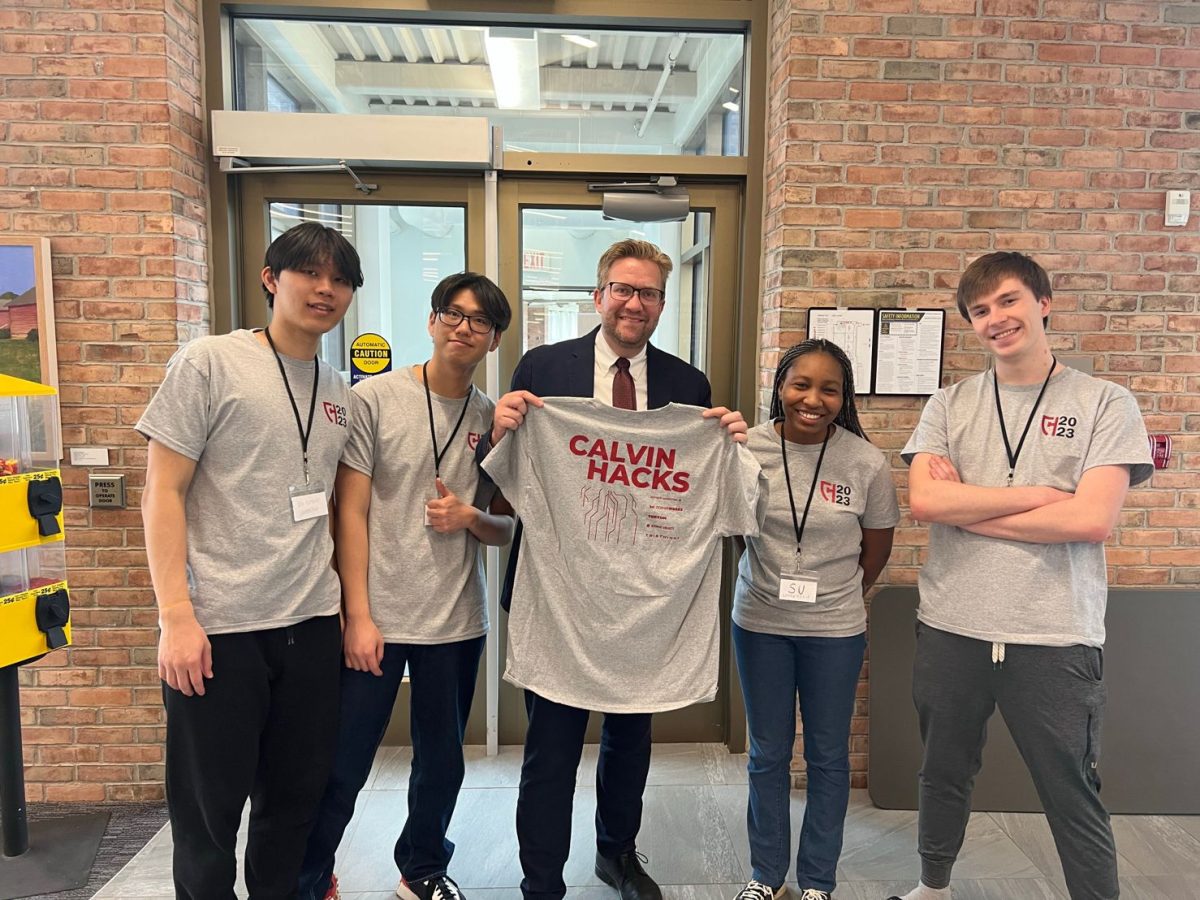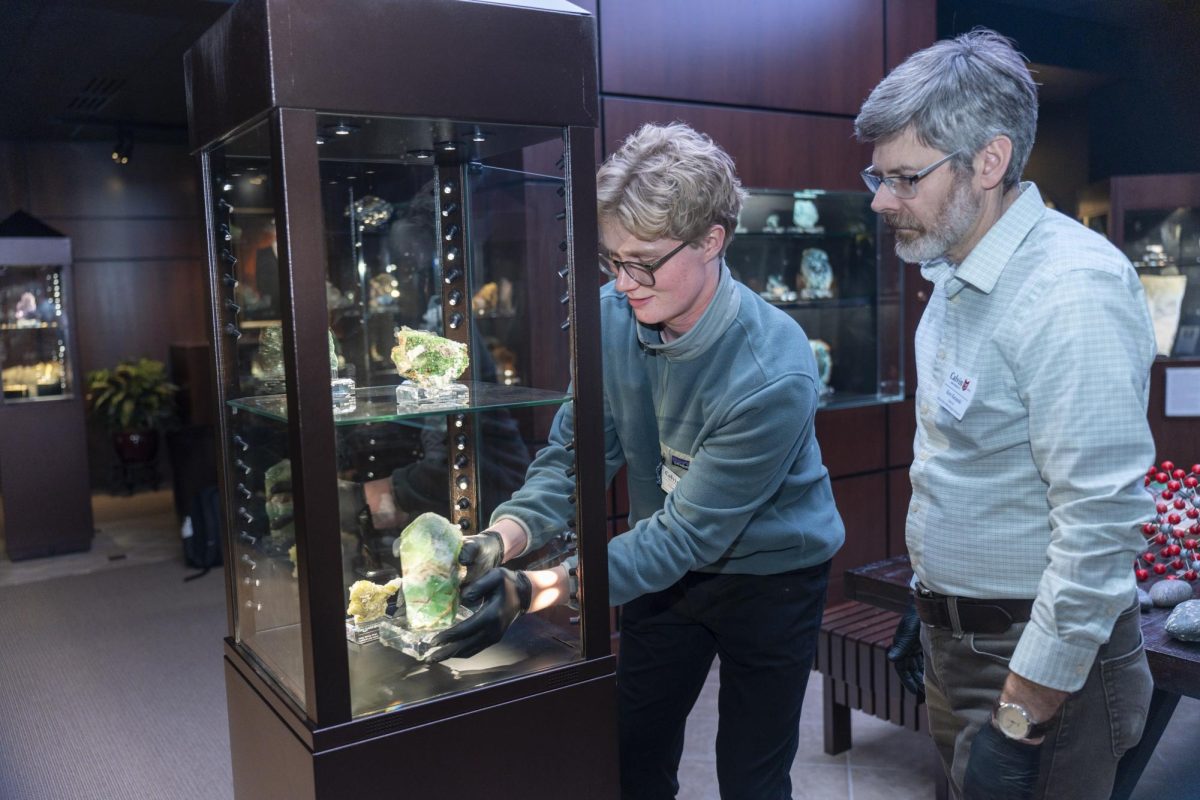This past Saturday, Calvin students, professors and community members came together to learn about the environmental challenges facing the Plaster Creek Watershed and to volunteer their time to address these problems.
During this event, dubbed “Alger Heights vs. ‘The Flash,’” around 75 people gathered at Calvin’s Bunker Interpretive Center for an educational presentation about the Plaster Creek Watershed and concerns with flash flooding, and then headed out into different sites in Alger Heights to plant rain gardens.
Plaster Creek is notorious for high levels of bacterial contamination, which get worse after heavy rainfall, attendees learned in Saturday’s presentation. This is because the water runs off impermeable surfaces like streets and parking lots and into the creek instead of being absorbed naturally by the ground.
One way to deal with this problem is to make rain gardens, which are intentionally planted gardens consisting of native plants that mimic the effect of the natural ground in absorbing water. This way, bacteria levels in Plaster Creek don’t rise every time there is a heavy rainfall because rain gardens are helping the ground absorb this extra water more slowly.
After the presentation, the volunteers split into six groups and headed to Alger Heights neighborhoods to begin planting.
Gail Heffner, Calvin’s director of community engagement and the co-founder (along with Dave Warners) of the Plaster Creek Stewards (PCS), was excited about participation in Saturday’s event.
“This was a wonderful event because all kinds of people came, ranging in age from a 3-month-old to several retirees, including some Calvin professors,” said Heffner. “Middle school, high school kids came, young parents with families, Calvin students; it’s really encouraging to see the variety of people that are getting involved.”
Nicole Reenders, a senior French major at Calvin, appreciated both the chance to learn and the chance to put that knowledge to work.
“I thought it was really surprising that, through rain gardens, we could actually mimic the drainage effects of pre-settlement Grand Rapids,” said Reenders. “The chance to plant in these neighborhoods with such a diverse group of people was something I really enjoyed as well.”
Senior Angela Dieleman, a music education major, agreed.
“I was really glad to be part of this event. … My favorite concept from the meeting at the beginning was when [the presenter] remarked that we don’t always think about the people we affect downstream.”
Luke Tilma, a junior who worked with PCS this summer as an employee of the Calvin biology department and helped lead rain garden construction on Saturday, also emphasized the idea of connections between community and the environment.
“Calvin’s existence within this watershed implies a twofold responsibility: to the creek itself, as well as everybody else who resides downstream of us. Our ways of life that influence the stream have a direct impact on the lives of those downstream, just as those who reside upstream of us can have a direct impact on our lives,” said Tilma.
“By working to restore the creek, we serve our creator God — who charged us to be stewards over his creation — and we serve the community and people with whom we share the watershed.”
Heffner added that volunteering with Plaster Creek can also link students with the greater Grand Rapids area:
“Events like this can give college students the chance to meet people in the surrounding communities and understand what some of their concerns are, what they’re excited about.”
Heffner explained that the Plaster Creek Stewards strive for a holistic volunteer model that combines learning with doing, like the event this Saturday.
“We try to explain how our actions are going to help, but we don’t want to just educate without giving people a chance to act.”







